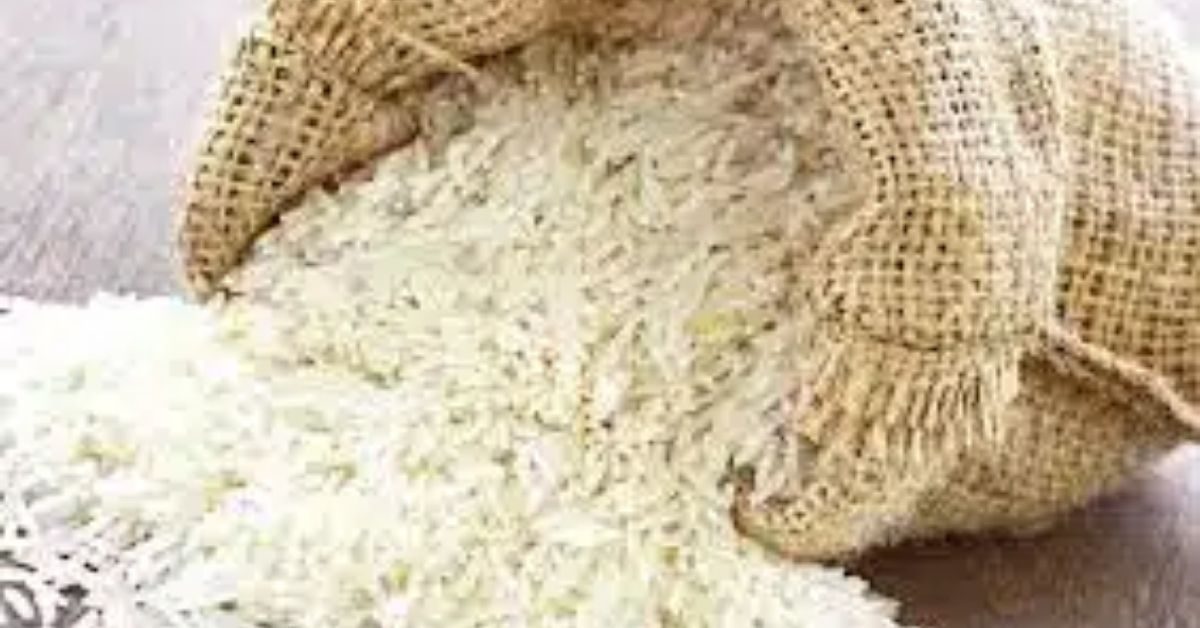A £1 billion ($1.2 billion) corner of the UK economy is fearing for its future as Britain and India close in on a long-awaited free-trade agreement. British rice millers such as Tilda Ltd. and Veetee Rice have thrived for decades by importing low-tariff unmilled brown rice from the likes of India and Pakistan and “polishing” the grains into the white product loved by UK consumers.
But with India pressing for tariffs on white rice to be slashed, and little feedback from British trade officials, concerns are mounting for an industry that employs more than 3,000 people at 16 mills and processing plants scattered from Kent in southern England to Yorkshire in the north.
“It is crucial that existing tariffs on milled (white) rice are maintained,” Alex Waugh, outgoing director of The Rice Association, said at a private event in the House of Commons last month attended by rice industry leaders and government officials. “If access on milled rice is conceded, the basis of operations will be undermined, the incentive for future investment in the UK will be lost and ultimately jobs will go.”
A spokesperson for the UK Department for Business and Trade said officials were working towards an “ambitious trade deal.” “We have always been clear we will only sign a deal that is fair, balanced and ultimately in the best interests of the British people and the economy,” the spokesperson said.
A UK-India trade agreement was meant to be a key prize of Brexit. Freed from the constraints of the European Union, the argument went, Britain could use a shared history and language to forge a landmark deal with the most populous nation on the planet and fastest-growing major economy.
In practice, negotiations launched under Boris Johnson in January last year have been plagued by ambiguity and wrangling over everything from visas for Indian workers and students to market access for UK makers of whisky and premium cars. Hopes that his successor Rishi Sunak might make the difference have proved wide of the mark.
With the UK and India locked in their 13th round of trade negotiations, there are hopes on both sides that agreement can be clinched this year. However, the fate of British rice millers remains unclear, with firms complaining of a lack of information from British officials.
One person with knowledge of the UK dialog said the question of tariffs on rice was yet to be fully addressed, adding that it was a contentious issue and that the two sides were still some way off ironing out the more “difficult” details of a trade deal. A separate source with knowledge of the Indian negotiating team confirmed that the subject of tariffs on rice was very sensitive, and that an agreement had not yet been reached. The struggle to hash out an agreement underscores the difficulties the UK might have when trying to formulate post-Brexit trade deals with various countries around the world.
Already its arrangement with Australia has angered British farmers. Minette Batters, president of the National Farmers Union, said she was “increasingly concerned about the cumulative impact of the government’s FTA program” on UK industries.
Currently, the UK imports vast quantities of brown rice from India — around 150,000 metric tons, or a quarter of its total rice imports, originate in the country. Import tariffs make this cost-effective. The levy on brown basmati is £25 a ton, or zero if it’s included in a list of special varieties. That’s much lower the levy on white basmati, at around £121 a ton.
Slashing the tariff on white rice would leave UK mills redundant, industry leaders claim, while bringing negligible price benefits for consumers, threatening security of supply and potentially risking a drop in quality.
Waugh contends there would be little gain for India from lower UK tariffs. Farmers in the country already tend to get a better price from UK mills than from domestic players for their brown rice, he said, since those buyers need to secure pesticide compliance and are increasingly keen to source rice with improved sustainability credentials.
For Indian millers, meanwhile, the quantities of their milled rice which would be exported to the UK are likely to be too small to really move the dial on their profits. The downsides for the UK extend beyond lost jobs and production, Waugh added. India is known for limiting exports of rice when its domestic supplies are scarce, with white rice often first on the list to be restricted. At the moment, the South Asian nation has implemented restrictions on every variety that is shipped overseas. UK millers hold significant stock to smooth that volatility, a supply that is now potentially threatened.
British businesses are also well-practiced in complying with food safety regulations — an important consideration when few checks on imported products are carried out at the border. The Rice Association recently sampled 60 different types of basmati rice. It found that 50% of the samples milled and packed in India or Pakistan complied with UK regulations. By contrast, just one sample milled and packed in the UK was found to be marginally non-compliant.
As trade negotiations have heated up, executives within the UK rice industry have been left bemused by their encounters with Indian officials. Jon Calland, chairman of the Rice Association, was invited along with a car-parts manufacturer to the High Commission of India in London earlier this year. “I’ve never had a meeting like that before,” he said. “It was as though they were trying to trade us off against each other.”








